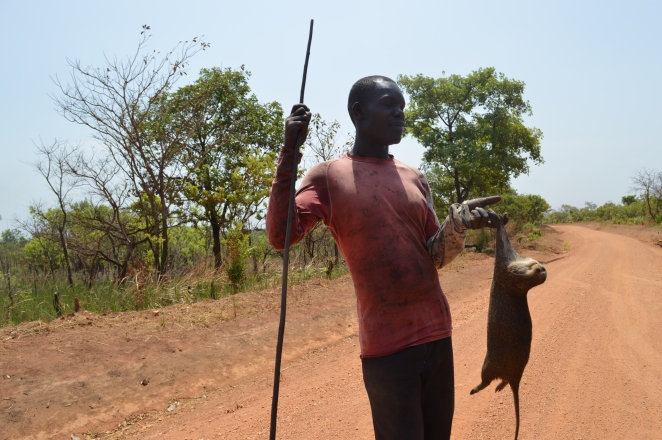By
Abalo Irene Otto
The word ‘‘Apaa’’ to many in northern Uganda and beyond is associated with conflict over land and the dramatic 2015 incident in which a group of elderly women undressed before two ministers and a host of other government officials.
The women were protesting what they termed the ‘‘grabbing of their land.’’ Apaa is claimed by both Amuru and Adjumani district. Amuru is occupied by the Acholi while the Madi is occupied by the Madi. The conflict threatened to pit the two tribes against each other.
But how would the people of Apaa want to be known by those outside of Apaa?
Last week I and two colleagues on the Voices for Peace radio programme, a production of the Northern Uganda Media Club (NUMEC) with support from USAID- SAFE, set out to Apaa to speak to locals and find out how they would want to be known.
The interviews from Apaa will result into the production of a 20 minutes broadcast—Voices for Peace radio—which broadcasts on five Gulu-based radio stations reaching listeners in Apaa.
We set off from NUMEC for the two hours’ drive to Apaa. The road between Lamogi and Labongogali was a rough ride but as we branched off to Okungedi, it turned out to be a smooth ride on a straight road that looked recently graded leaving a cloud of dust behind as the Boda boda and other road users struggled to move to their various directions on the about 2.5 meter width of the road. This is the only road that leads to Adjumani district. As we entered Apaa, just about five hundred meters away from the busy center, a hunter emerged from the bush with a beaming smile and a fat edible rat, a local delicacy, dangling in his one hand and a spear in the other. Standing akimbo, the hunter waved at us invitingly
“Hello,’’ he said ‘‘This one is only 20,000 shillings. It is my best for today, can you take it. You will enjoy.”
The hunter, we learnt is Simon Komakech, a resident of Omer Junction in Apaa parish. Komakech is a senior four dropout of Pabbo secondary school. On a good day he gets 50,000 shillings from selling edible rats and squirrels, he told us.
 default
default
Komakech is also a subsistence farmer planting simsim and cassava to provide for his old mother who can no longer afford to pay him in school (How old is Komakech?)
“My parents are now old and cannot afford to take me back to school. I do this[hunting] to make some money and to care for the family,’’ he said adding ‘‘But life here is good because I can make money any time I want as long as I can get into the bush to hunt.”
For those who have never been to Apaa, Komakech says it’s a land of honey and edible rats.
In Apaa trading centre we found vegetable seller Apiyo Nancy from Lulayi East that borders Adjumani district. Apiyo told the Voices for Peace team that she is engaged in agriculture—planting cassava, simsim, maize and groundnuts.
The proceeds from her garden helps her send her four children to the local school. She, however, wants the Amuru district authorities to construct roads and bridges to enable easy access to school by children during the rainy season.
In the heart of Apaa trading centre, we met Okot Atanasio from Goro B. Okot is Chairman of the business community in Apaa.
“The Madi people come here to trade with us and we get goods from them as well. We have no problem. We are living peacefully,’’ said Okot Atanasio. ‘‘We want the government to bring for us social amenities like schools and hospitals so that we can live healthy and develop our land.”
Grace Anek lives 12kms away from Apaa trading centre. She had travelled to the market in Apaa to sell her sorghum. Anek has a son. She wants him to be a doctor. She appealed to the government to construct schools in Apaa. Apaa Parish in Amuru district has 24 community schools without any government aided primary school.
Although it shot to limelight because of a land conflict that led to the undressing of women, Apaa is like any other rural Ugandan village in which the locals are engaged in agriculture; want social services like schools, hospitals and good roads. Apaa residents also inter depend on other neighboring communities like the Madi sharing markets and selling produce from the two communities.
Edited by
Moses Odokonyero
Other relater story
http://numec.ug/apaa-the-land-of-honey-and-edible-rats/
